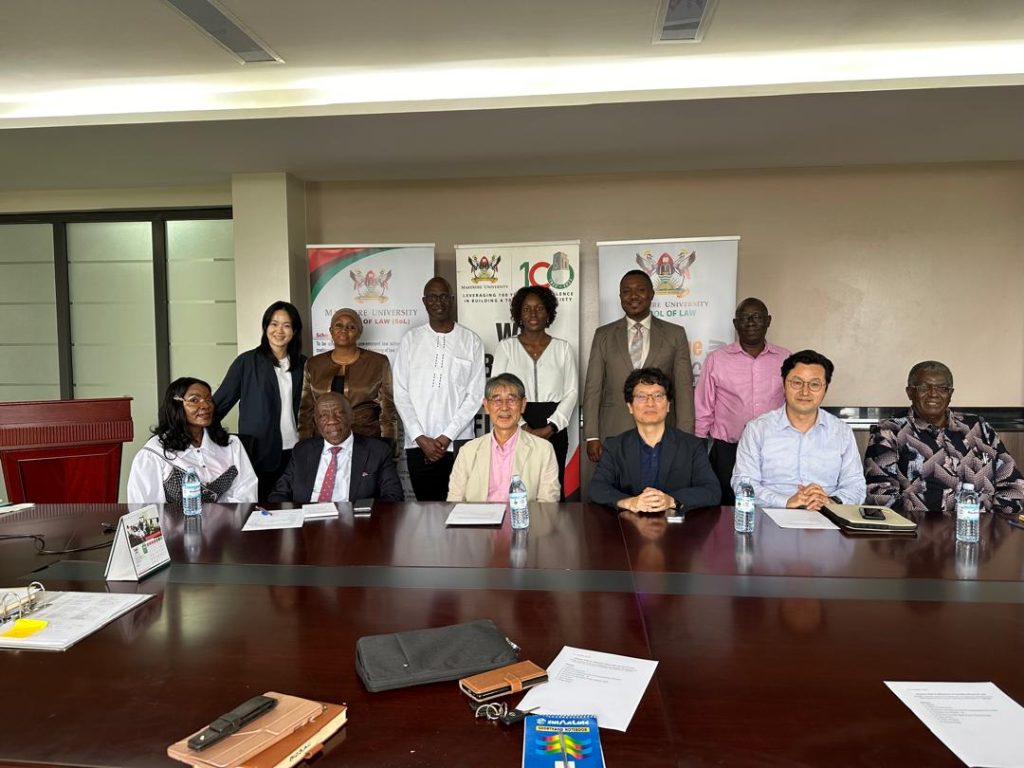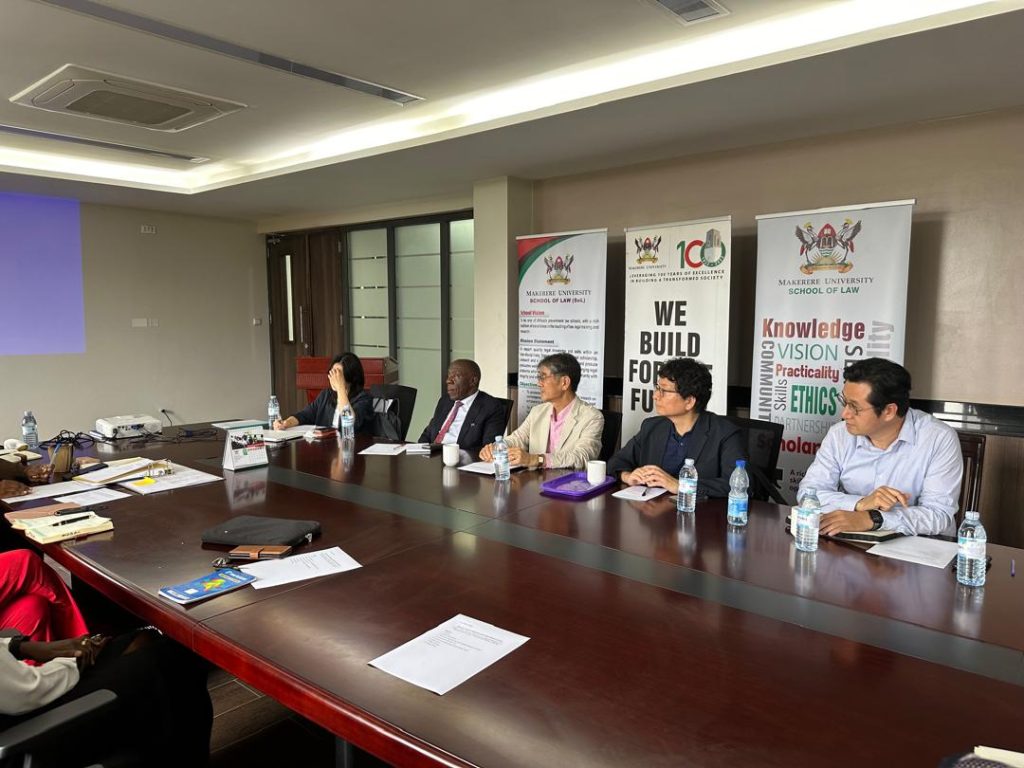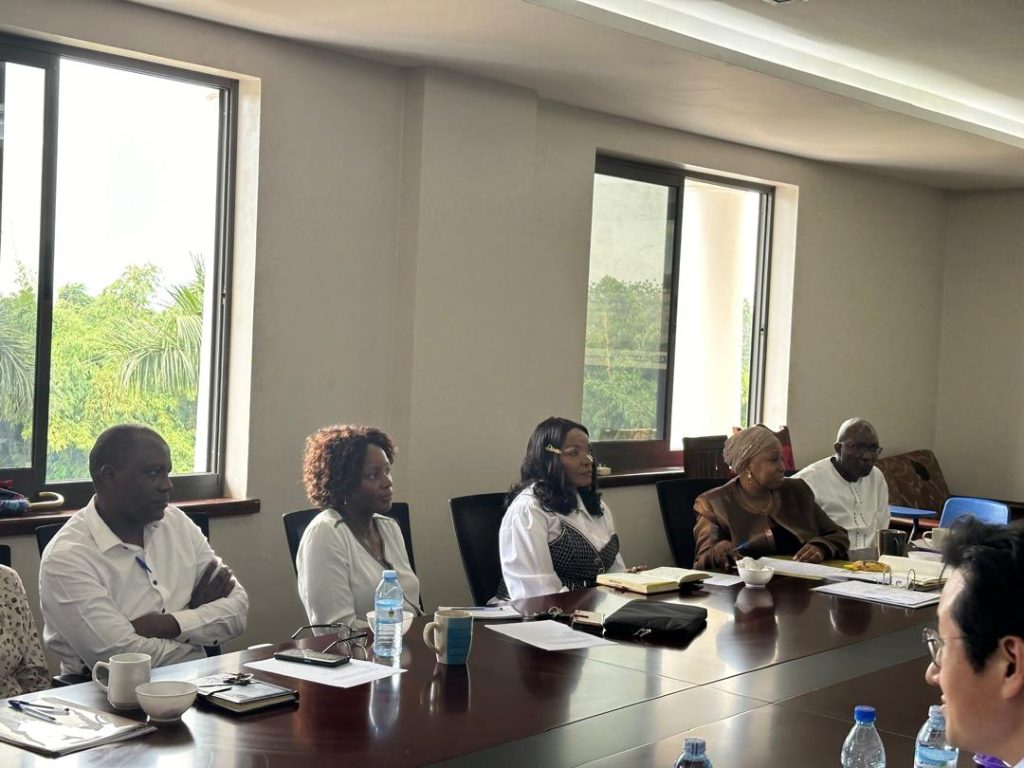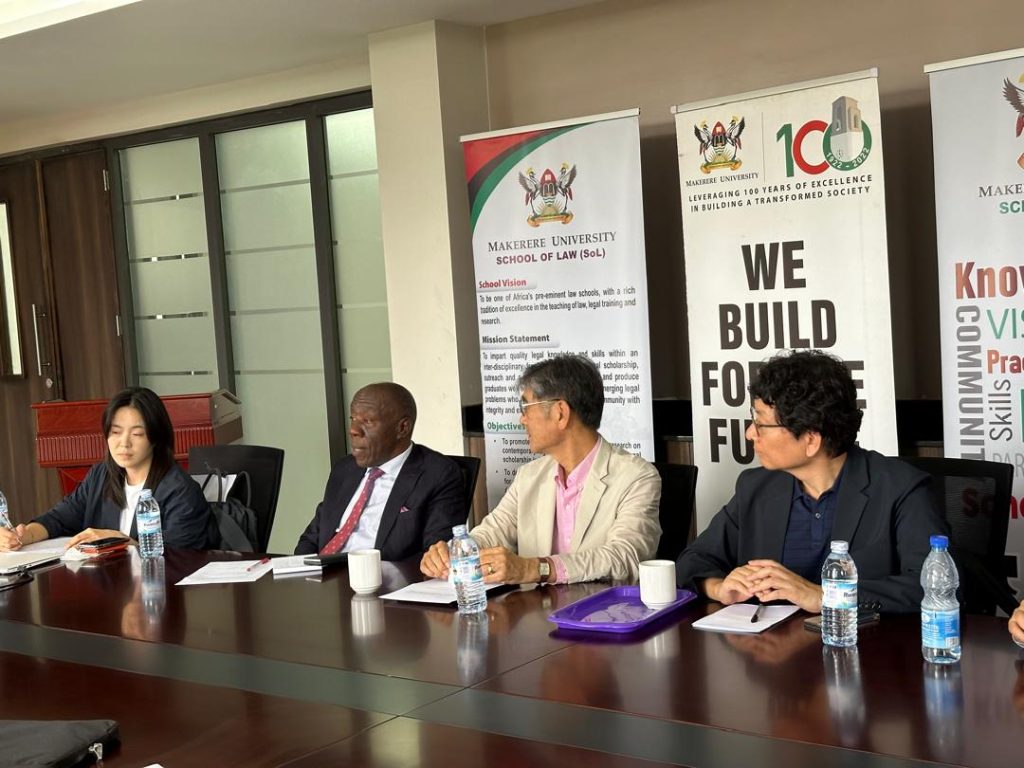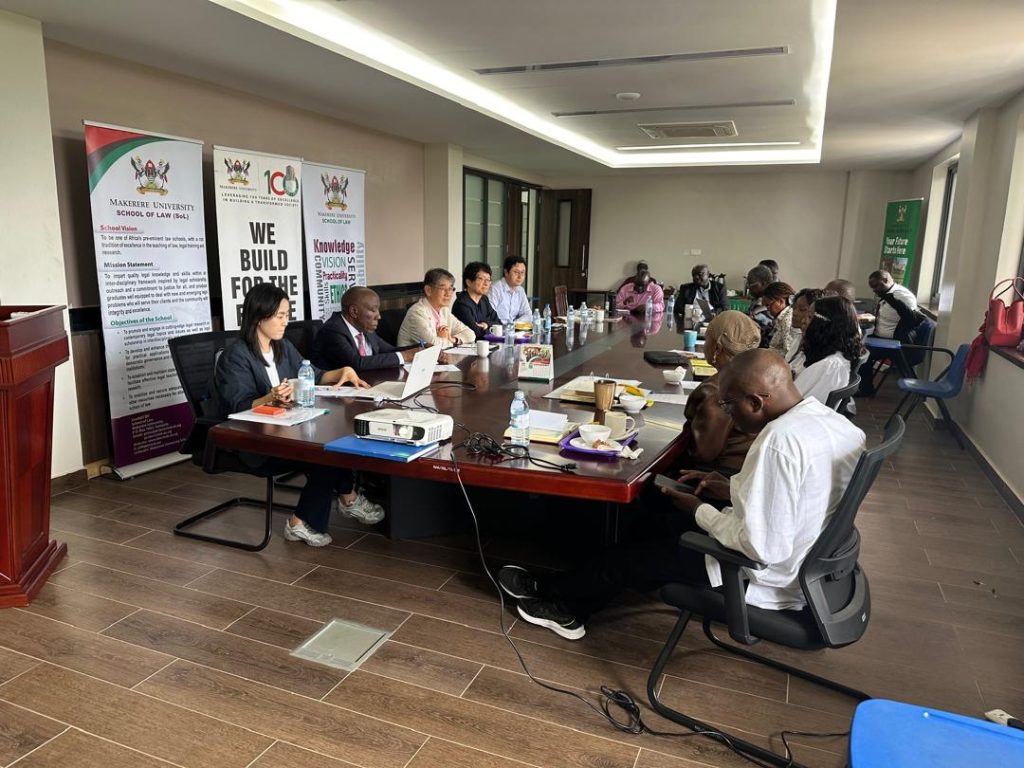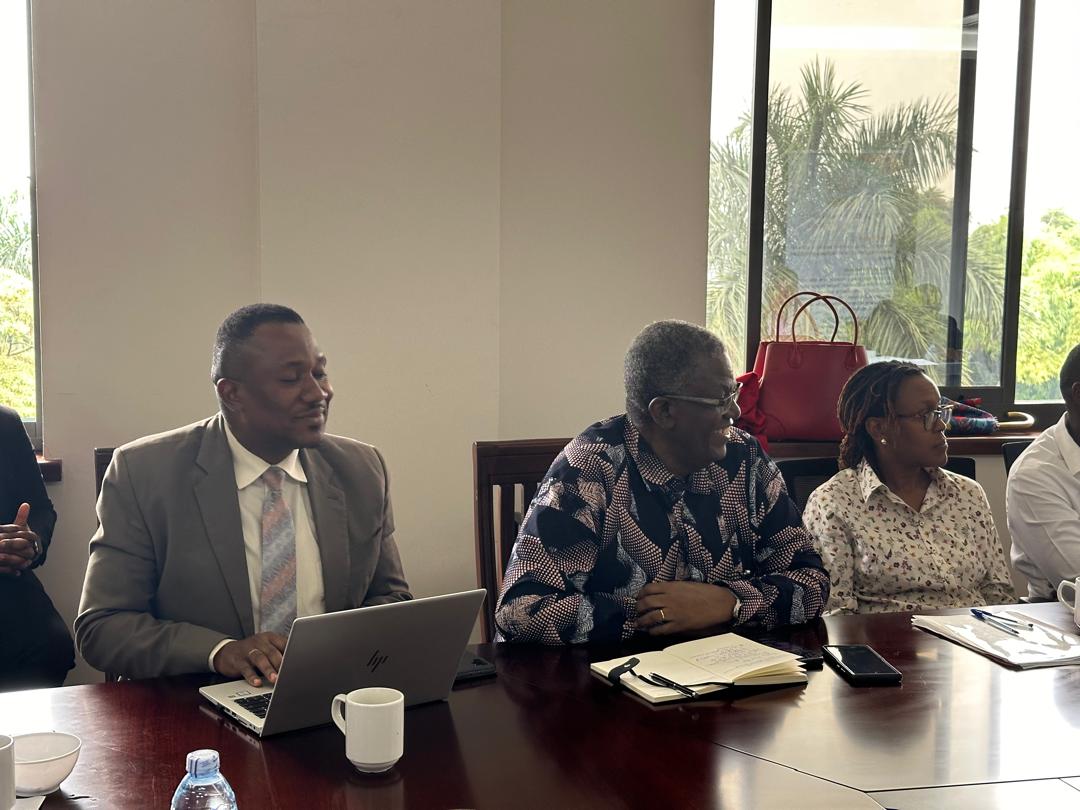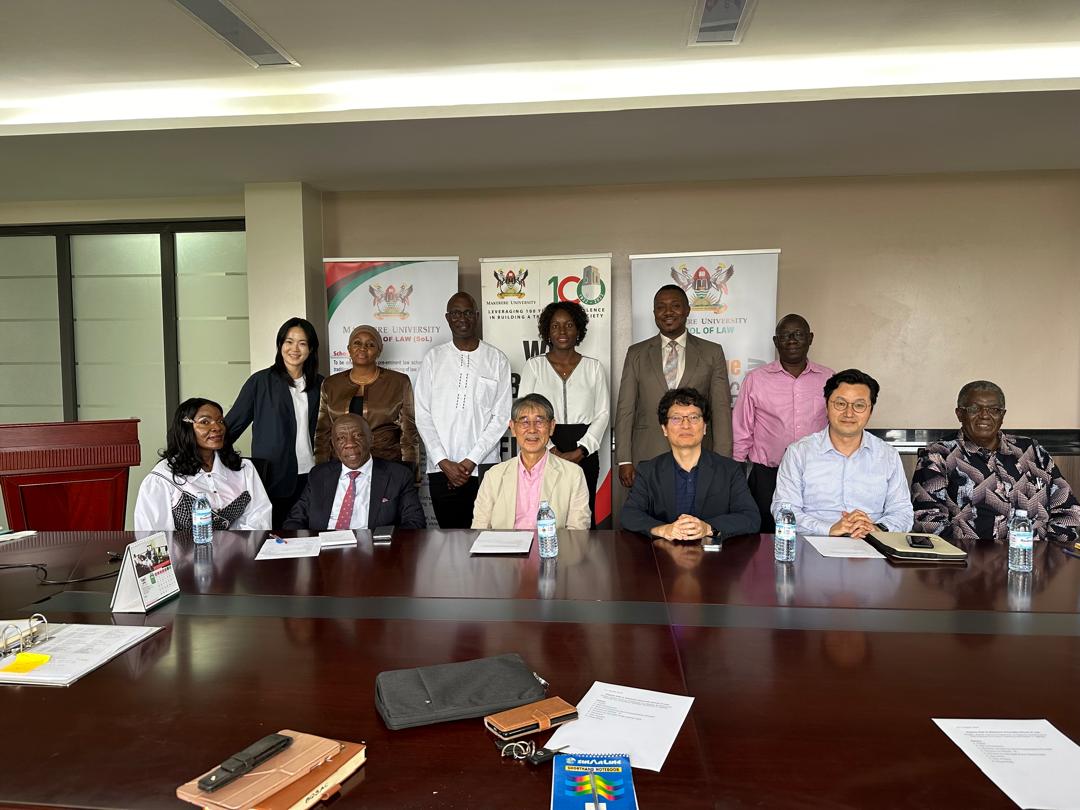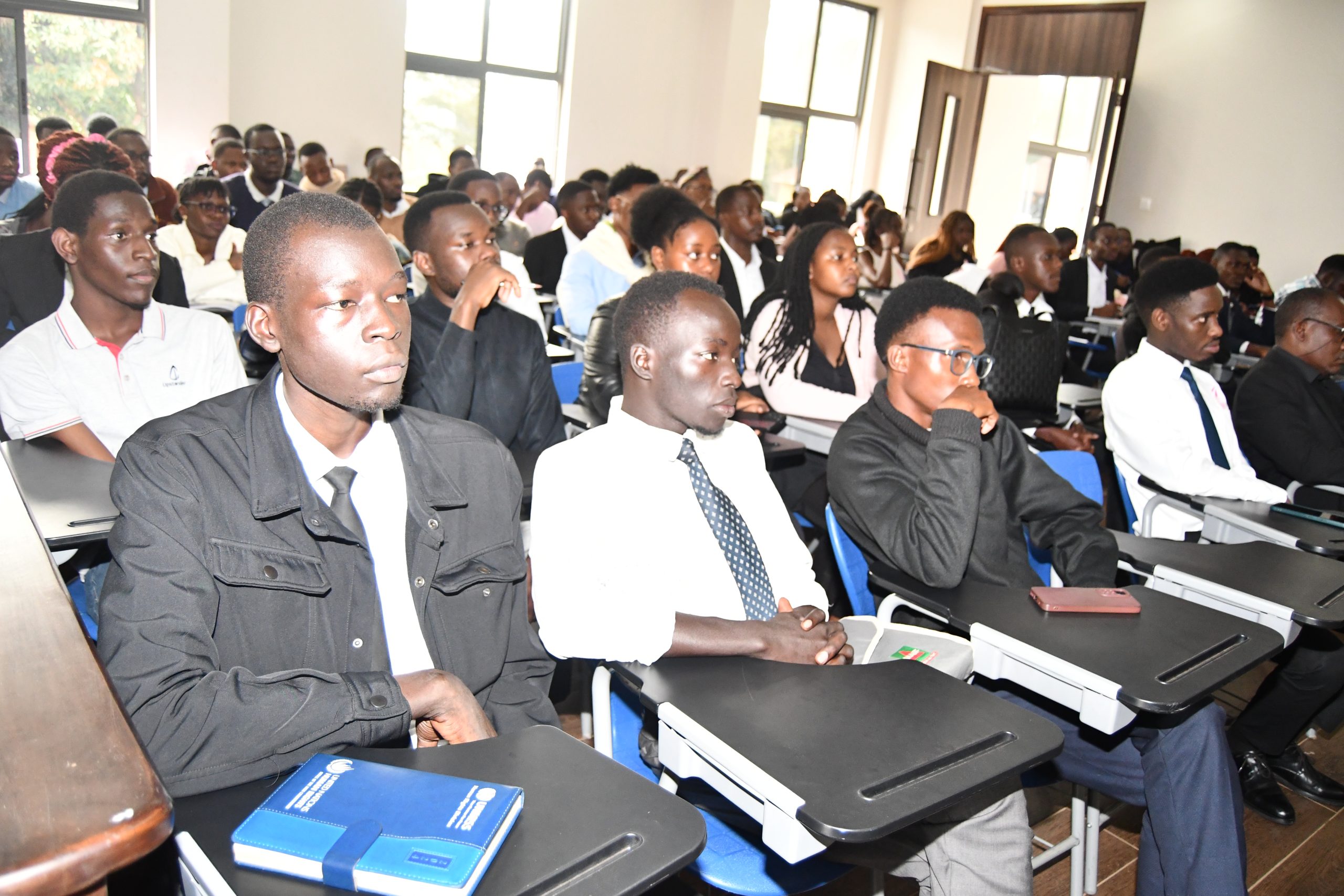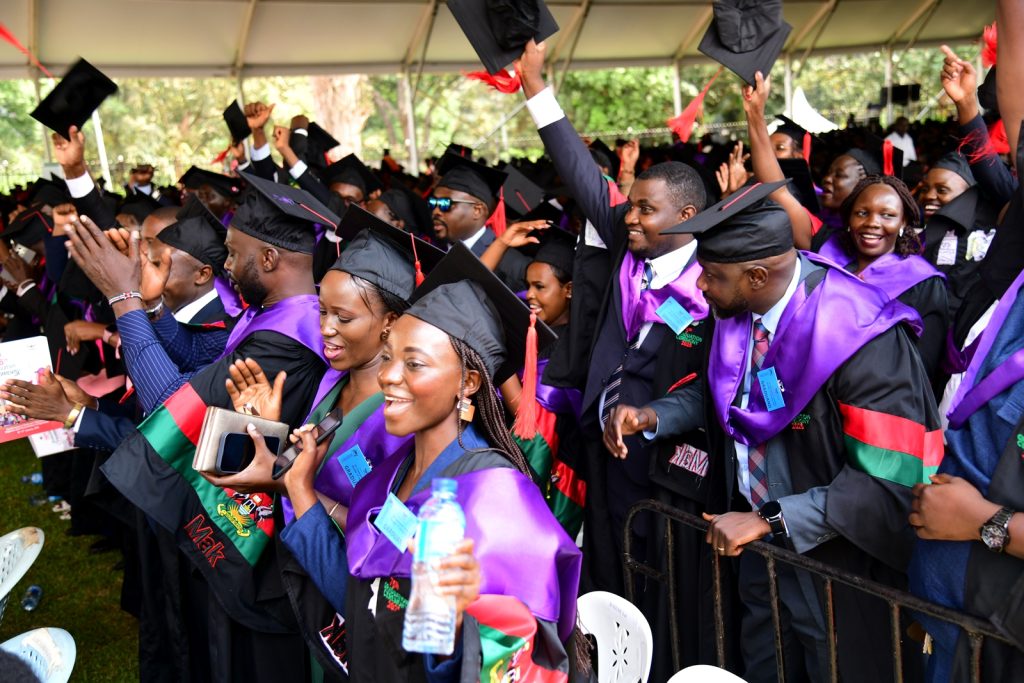KOICA/KNOU Experts Visit to MakSoL
Makerere University received support of USD 12.2 Million from the South Korean Government through the Korea International Cooperation Agency (KOICA) to implement a project on enhancing Online, Distance and eLearning (Odel) environment at Makerere University. The project has three main components: Formulation of a masterplan for enhancing Odel at Makerere University; Implementing capacity development program for staff involved in Odel and content development; and improvement of distance education infrastructure.
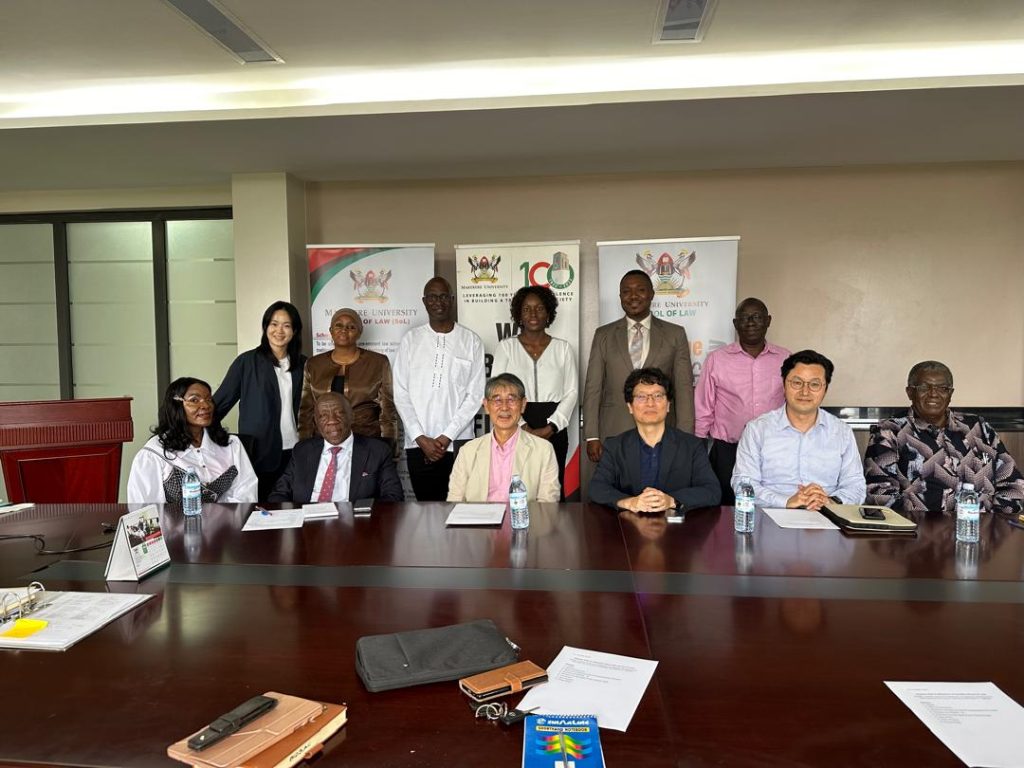
A team of experts from the Korea National Open University, Seoul, South Korea which will support implementation of the project visited the School of Law, Makerere University (MakSoL) on the 21st August 2024. The visit was an opportunity to discuss possibilities and challenges of Odel and therefore inform the experts on the requirements for a successful implementation of the project.
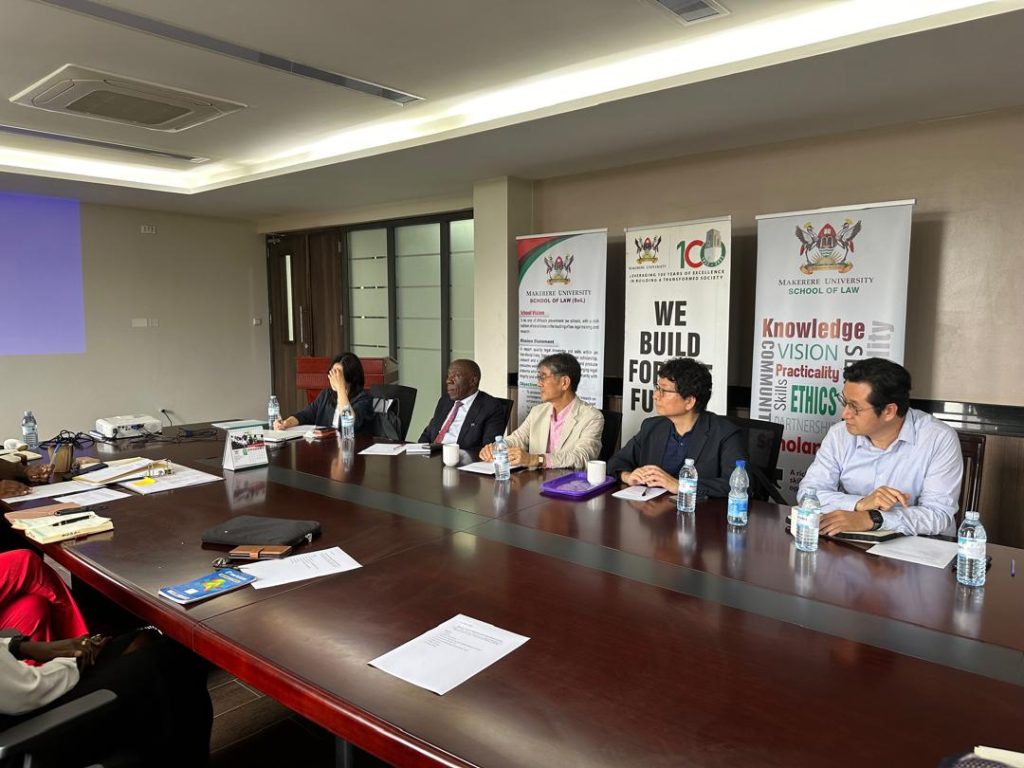
Under the project, Dr. Josephine Ndagire was sponsored to attend at training course at KNOU and she will serve as coordinator at MakSoL.
Dr. Zahara Nampewo, Ag. Principal – MakSoL welcomed the visitors to the School of Law. She explained that initial work for onlinisation of the curriculum began with support of the ODEL Department from the College of Education and External Studies (CEES) with training of the staff. However, partnerships are welcome to enhance Odel service considering the first changing environment of education and the experience during the Covid19 pandemic.
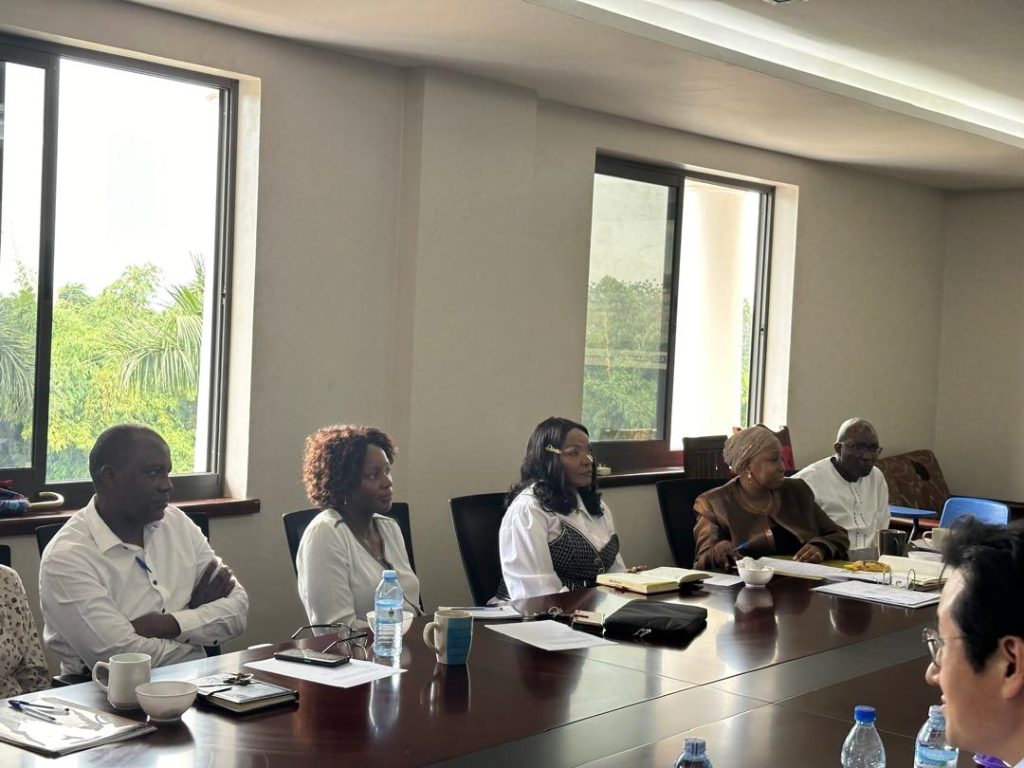
The Principal Investigator of the project is Professor Henry Alinaitwe, Ag. DVC/F&A, Makerere University and the Co-PI is Dr. Venny Nakazibwe.
In his remarks at the visit, Professor Alinaitwe said, ‘Makerere is proud to start on this journey and we hope to serve our clients better’. He explained that training of trainers, building and installations and capacity building will begin soon; cooperation from all staff is expected for better implementation.
Some of the issues raised by the academic staff presented included; handholding required to support members; protection of intellectual property; keeping classes’ engaged; continuous improvements; identification of pilot course; and protection against plagiarism.
